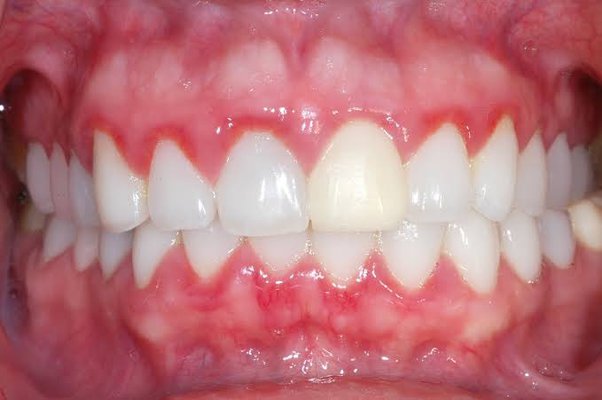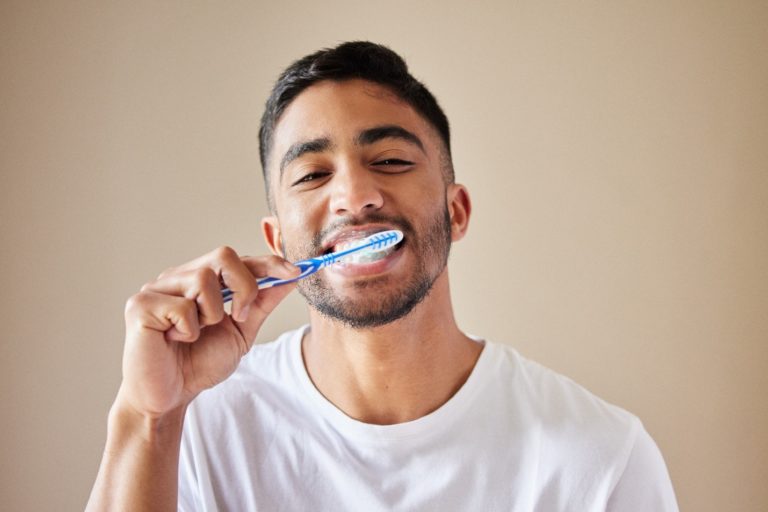When you have a routine check-up scheduled or are visiting the dental clinic for a specific concern, you may be thinking if you should actually brush your teeth before having it checked. Some believe it’s an essential courtesy, while others think it might hide dental issues. So, should you brush your teeth before going to the dentist?
Yes, you should brush your teeth before visiting the dentist. While it may seem like a simple act, taking a few minutes to brush your teeth before your dental appointment can make a world of difference in your overall dental experience.
In the rest of this article, we will explore the different reasons why you should do so, and how to prepare your teeth for the dentist. So, let’s dive in and discover why brushing your teeth before seeing your dentist is more than just a routine chore – it’s an essential part of your dental care journey.
Why Should I Brush My Teeth?
Brushing your teeth before your dental appointment is a recommended practice for most people, and it can positively impact your overall dental experience. Here are some of the reasons why you should do so:
- Brushing is a Courtesy: Brushing your teeth before visiting the dentist is a matter of common courtesy. Imagine your dentist examining your mouth with accumulated food particles, plaque, and bacteria. By brushing your teeth, you help create a more pleasant experience for both yourself and the dental professional attending to you.
- Surface Stains and Bad Breath: While regular brushing helps remove surface stains from food and beverages, it also helps to freshen your breath. If you suffer from bad breath due to the presence of bacteria in your mouth, brushing before the appointment can help mitigate the issue temporarily.
- Facilitate a Thorough Examination: A clean mouth allows the dentist to perform a more thorough examination of your teeth and gums. When your teeth are free from debris and plaque, the dentist can easily identify potential issues, such as cavities, gum disease, or other dental concerns.
- Bolster Your Confidence: Getting your teeth sparkling clean ahead of your appointment can give you a little confidence boost. That said, it is not that easy to fool your dentist if you have not done your regular brushing. This will be elaborated in the next section.
You may be interested in: Will Listerine Kill Tooth Infection?
Note that there are exceptions to this practice. If you have a dental concern that requires immediate attention, such as severe tooth pain, a broken tooth, or an oral infection, it’s essential to see your dentist promptly. In such cases, brushing beforehand may not be necessary, as the dentist needs to assess the problem as it is.
Can a Dentist See The Difference?
A dentist is able to see the difference between those who do not brush regularly or correctly, against those who do. Patients who practice proper and regular brushing will have a pink hue on the junction of the gum and teeth. This is generally seen as a sign of good dental health.
In contrast, individuals who do not practice good dental health will see redness in the area where the teeth and gum meet. This red coloration is due to a form of inflammation better known as gingivitis. Gingivitis is primarily caused by an extended period of buildup of plaque.

The plaque cannot be brushed away in a matter of few hours, nor can the redness caused by gingivitis disappear in a short period of time. Thus, a dentist can easily observe a difference between those who carry out regular brushing and those who just brushed minutes before their appointment.
Remember that brushing your teeth before a dental visit does not replace your regular oral hygiene routine. Continue to brush and floss daily, maintain a healthy diet, and visit your dentist for regular check-ups and cleanings. By doing so, you’ll contribute to the overall health and longevity of your smile.
How Do You Brush Teeth Before Going to Dentist?
Brushing your teeth before going to the dentist is a simple process, but there are a few tips to keep in mind to ensure you do it effectively. Here’s a step-by-step guide on how to brush your teeth before your dental appointment:
- Rinse your mouth: Start by rinsing your mouth with water to remove any loose debris and particles.
- Apply Toothpaste: Squeeze a pea-sized amount of fluoride toothpaste onto your toothbrush.
- Brush at a 45-Degree Angle: Hold your toothbrush at a 45-degree angle to your gums. Gently brush your teeth using small, circular motions.
- Don’t Forget Your Tongue: Brush your tongue gently to remove bacteria and freshen your breath.
- Use Gentle Pressure: Avoid brushing too hard, as aggressive brushing can damage your gums and tooth enamel.
- Time Matters: Brush your teeth for at least two minutes to ensure a comprehensive clean. Ensure you brush all the tooth surfaces – outer, inner, and chewing surfaces.
- Rinse your mouth: After brushing, rinse your mouth to remove any plaque or debris dislodged by the brushing. You may consider using an oral rinse for more effective cleaning and to freshen up your breath.
- Floss Your Teeth: Gently slide the dental floss or interdental brush between your teeth and along the gum line. Be cautious not to snap the floss, which can harm your gums.
After brushing, avoid eating or drinking anything (except water) after brushing your teeth. This helps to maintain the cleanliness of your mouth for the dental appointment.
By following these steps, you can ensure that your teeth are clean and your mouth is fresh before you visit the dentist.
Concluding Thoughts
To conclude, the answer to whether you should brush your teeth before going to the dentist is a resounding “Yes.” Brushing your teeth before your dental appointment is a simple yet essential step that can significantly impact your overall dental experience and oral health.
However, it is essential to be mindful of specific exceptions. In the case of urgent dental issues, such as severe pain, oral infections, or broken teeth, prioritize seeking immediate dental care rather than focusing on brushing beforehand.
So, next time you have a dental appointment, remember the importance of brushing your teeth before you go. By taking this simple step, you contribute to a smoother, more informative visit that can keep your smile bright and healthy







